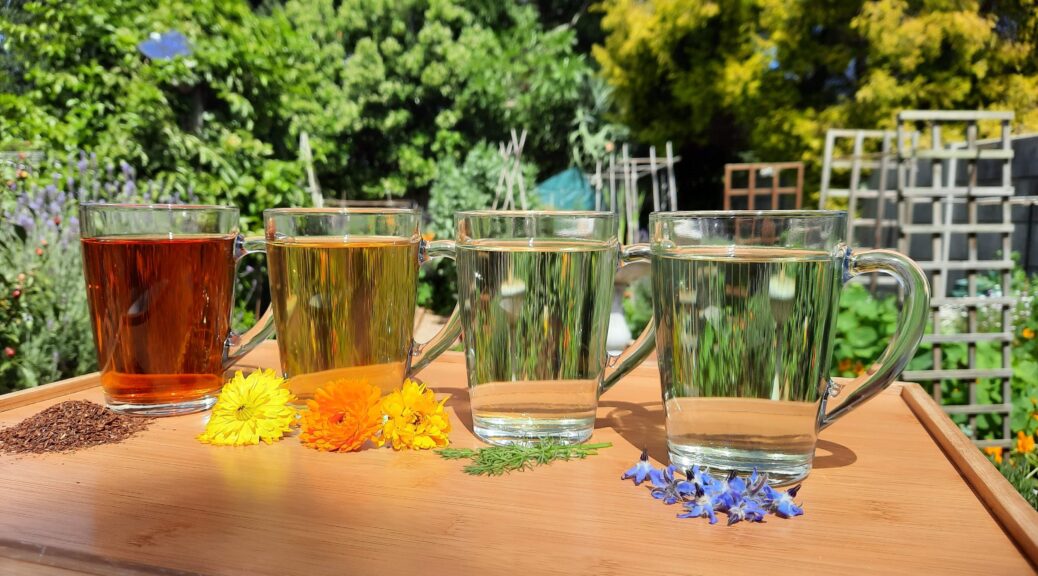
It’s tea time – Teas that can benefit your garden
For centuries tea has been drunk for enjoyment, for comfort, for convalescence and for health. But did you know that there are certain teas that can benefit your garden?
Strictly speaking these teas are not tea in the true sense of the word. Purists would agree that tea is only tea if made with the leaves from Camellia sinensis – the traditional tea plant. To be more correct we could rather use the terms herbal tea, infusions or even tisanes.
Just as we improve and boost our health by drinking herbal teas from different plants and flowers, so too can the health of fruit and veg growing in our gardens be boosted by a variety of simple infusions.
Which teas can benefit your garden?
Green fertiliser tea
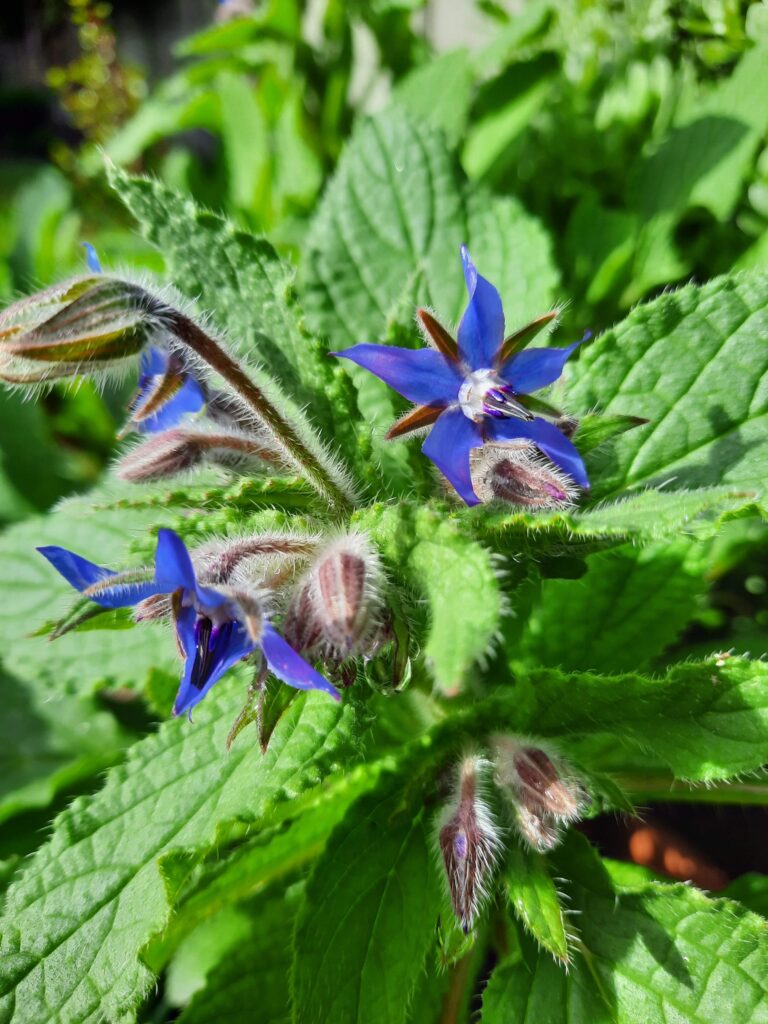
Borago officinalis, or Borage as it is commonly known, is a large summer annual that attracts all sorts of beneficial pollinators to the garden. It is easily recognised by its pretty blue to violet star-shaped flowers and large hairy leaves. The leaves are rich in minerals such as calcium and potassium and can be used to make a green fertiliser tea for your plants.
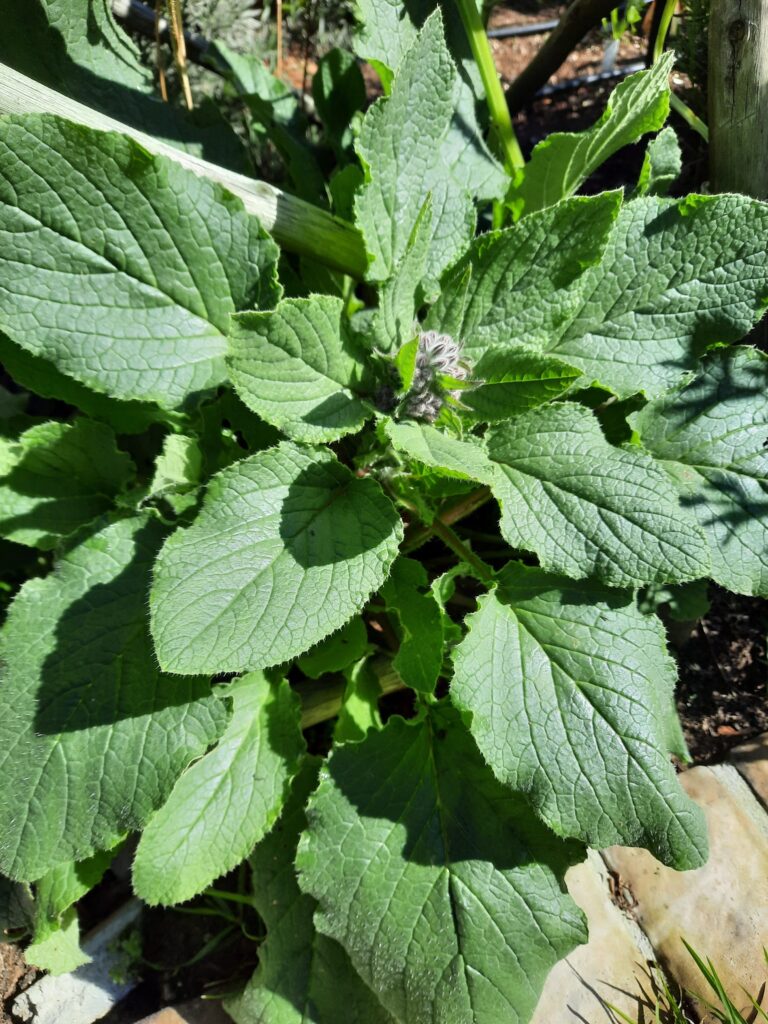
Make the Borage tea by soaking some bruised leaves in a bucket of water for 24 to 48 hours. This is a great mineral supplement for green leafy veg and the infusion can be applied as a foliar feed or soil drench. On top of that the used Borage leaves make an excellent green manure. They can be used as a nutritious mulch or compost activator.
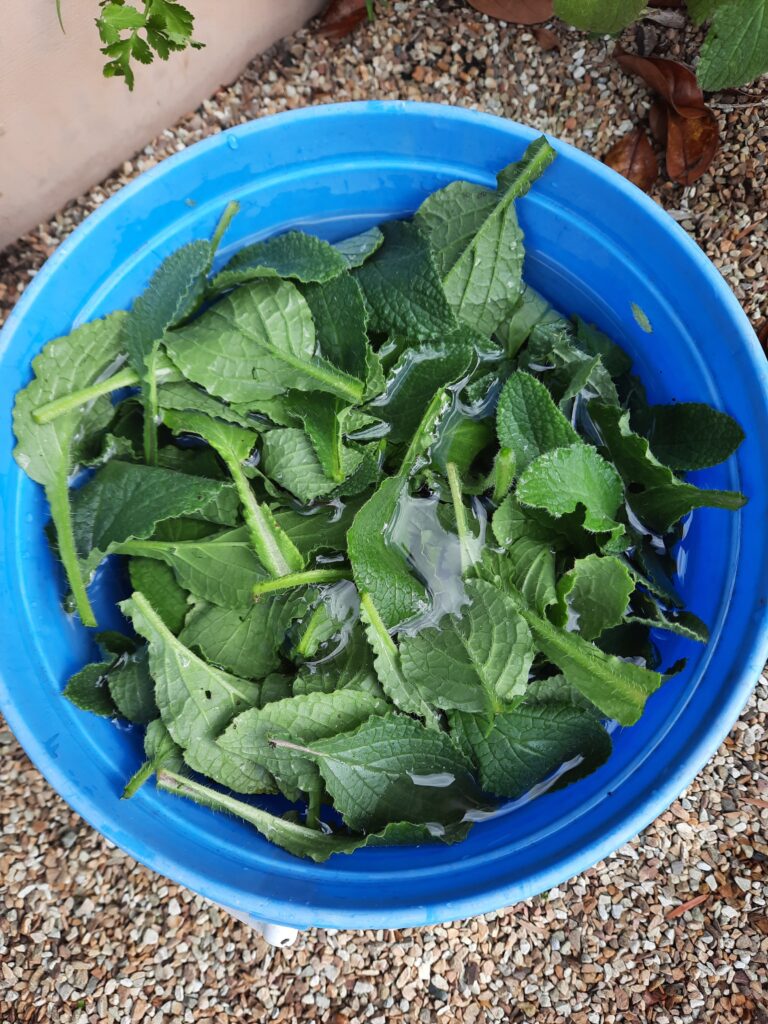
Borage likes to grow in a sunny position although will appreciate a bit of shade from the harsh summer sun in hot climates. It makes a good companion to strawberries, beans and lettuce. A bonus is that it freely self-seeds.
Tea from banana peels
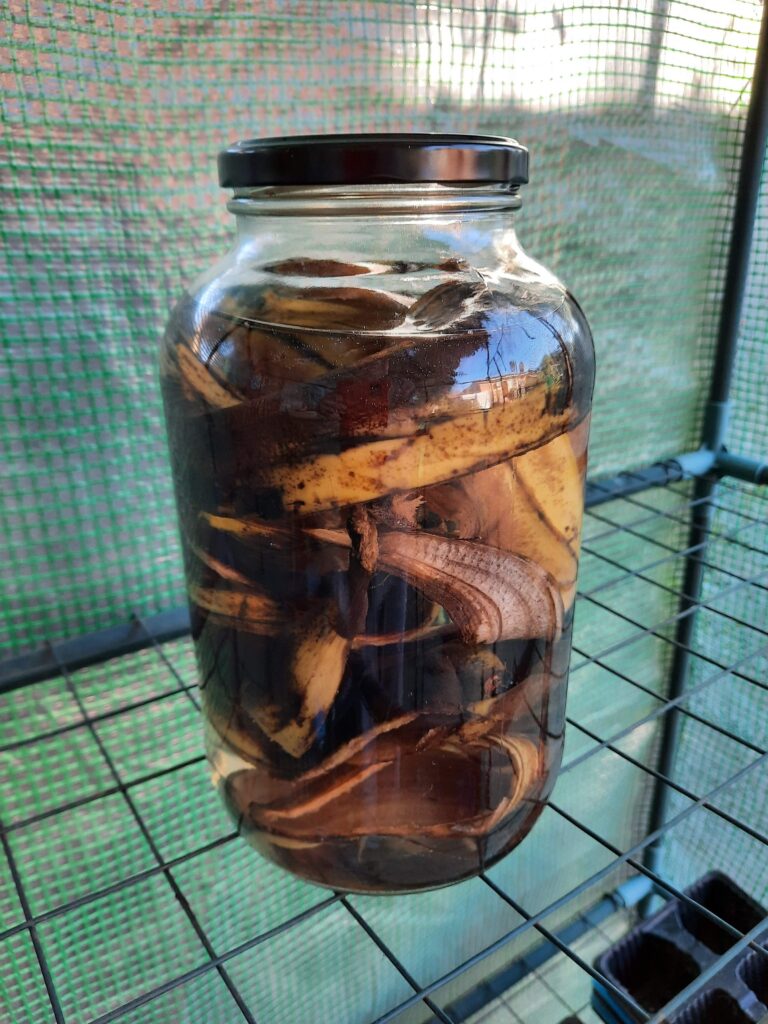
Banana skins are full of beneficial minerals such as potassium, magnesium and phosphates (compounds containing phosphorus and oxygen). They also contain traces of calcium and zinc.
Potassium, the K in N-P-K, is one of the main elements or macronutrients needed by plants. So called since it is used in larger amounts than micronutrients such as zinc. It is vital for the healthy growth of stems, flowers and fruit. Potassium helps plants maintain a healthy water content which is necessary for photosynthesis and transpiration.
Making banana tea is as simple as soaking a number of banana peels in water in a jar or a bucket for 24 to 48 hours. Add the tea to your watering can at a ratio of 1:5. Feed your edibles when flowering so that they produce healthy, plump fruit and veg.
The used peels can be added to the compost or given to the earthworms in the worm farm if you have one. Alternatively they can be dug directly into the ground.
Teas to combat blossom end rot
Blossom end rot is basically when the fruit or veg starts going bad from the flower end. Tomatoes and squash are particularly prone to it.
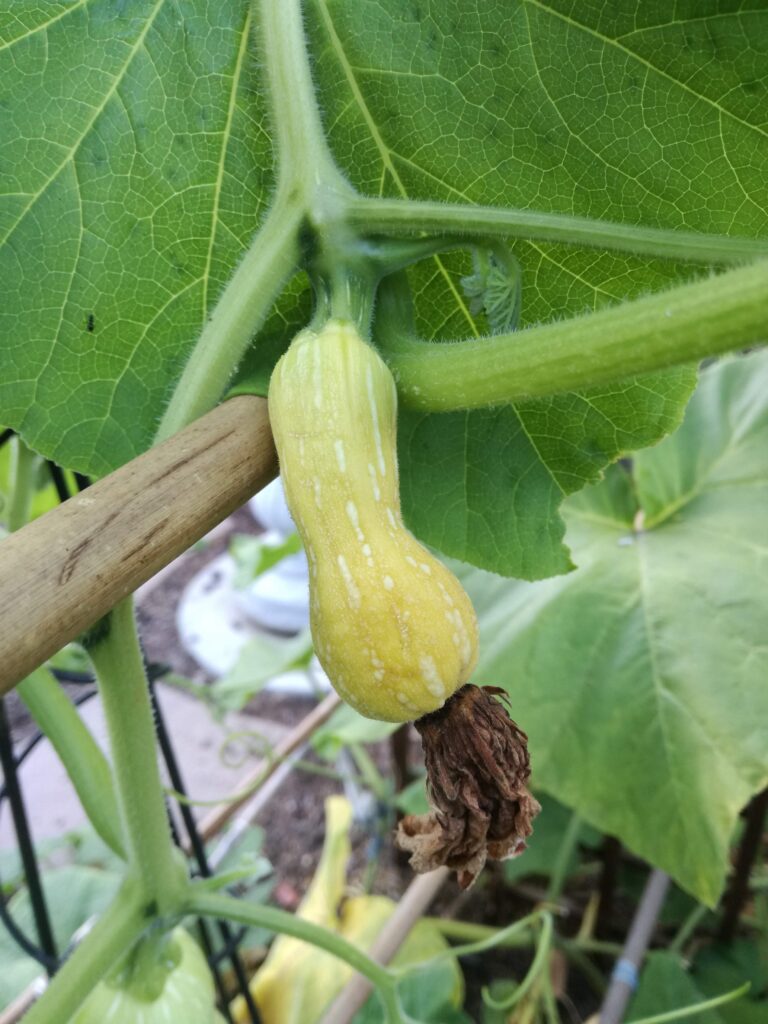
Irregular watering may cause this or it may be a calcium deficiency in the soil. If you know your plants receive a regular, consistent supply of water then you may want to give them a calcium boost. Plants need calcium to grow. It helps in developing healthy cell walls and aids the plants in absorbing nitrogen. A stronger plant is more resistant to diseases and pests.
Both chamomile tea and egg shell tea can aid in increasing the supply of calcium available to the plants.
Chamomile tea
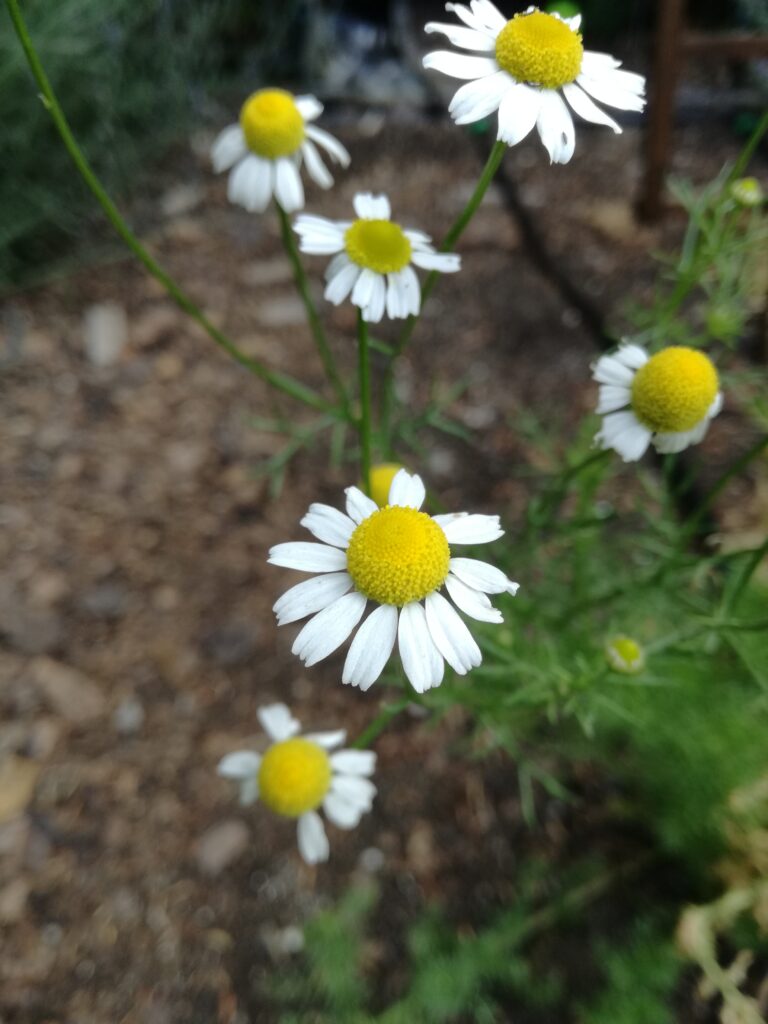
Matricaria recutita has an outstanding reputation for its benefits as a great companion plant to just about any plant it grows near. Tea made from this dainty flower is a significant source of calcium and can be used as a foliar spray.
To make the tea pour boiling water over a handful of Chamomile flowers and leaves and allow to steep. You can also use tea bags if you don’t have any Chamomile growing in the garden. Allow the tea to cool, fill a spray bottle and apply it generously to the plants’ leaves. It is recommended to apply the foliar feed early in the day to give the leaves time to dry thus avoiding the chances of plants contracting powdery mildew.
Digging the spent flowers and leaves into the ground as a green manure can also help in adding traces of calcium to the soil. Chamomile likes to grow in full sun in well-draining, compost-rich soil.
Egg shell tea
Another tea which has very high levels of calcium is egg shell tea. Egg shells are made mostly of calcium carbonate and therefore your plants will get a real pick-me-up from this tonic.
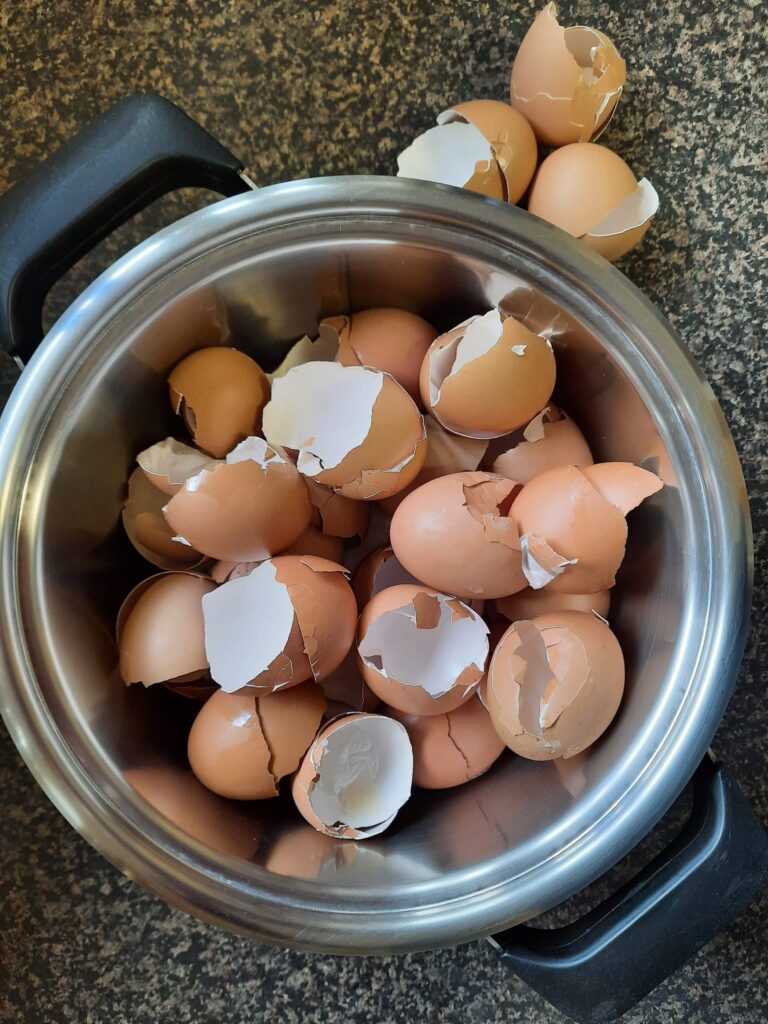
I used egg shell tea on my butternuts when they were showing signs of blossom end rot and what a difference it made. This is without a doubt one of the teas that can benefit your garden.
To make the egg shell tea use about 20 – 25 egg shells. Boil them in a pot of water for about 10 minutes. Let the liquid cool and leave for 24 hours. Strain the bits of shell from the tea using a sieve or tea strainer. Fill a spray bottle and apply generously to the affected plants’ leaves.
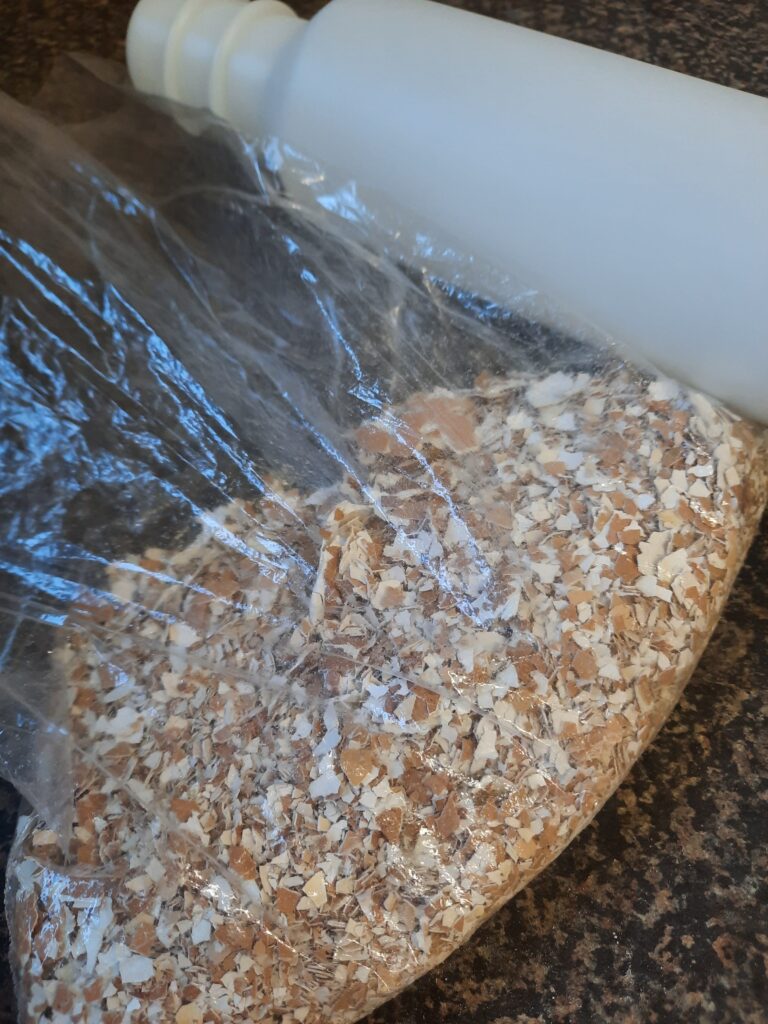
Crush the left over egg shells and put them into the compost or dig into the soil. I wouldn’t bother with putting it around plants to ward off snails as they have no trouble crossing crushed shells to get to your plants. Snails actually eat the shells as a source of calcium for themselves so just work the shells into the soil.
(If you would like to read about my egg shell and snail experiment click here).
Making a bug-deterrent tea
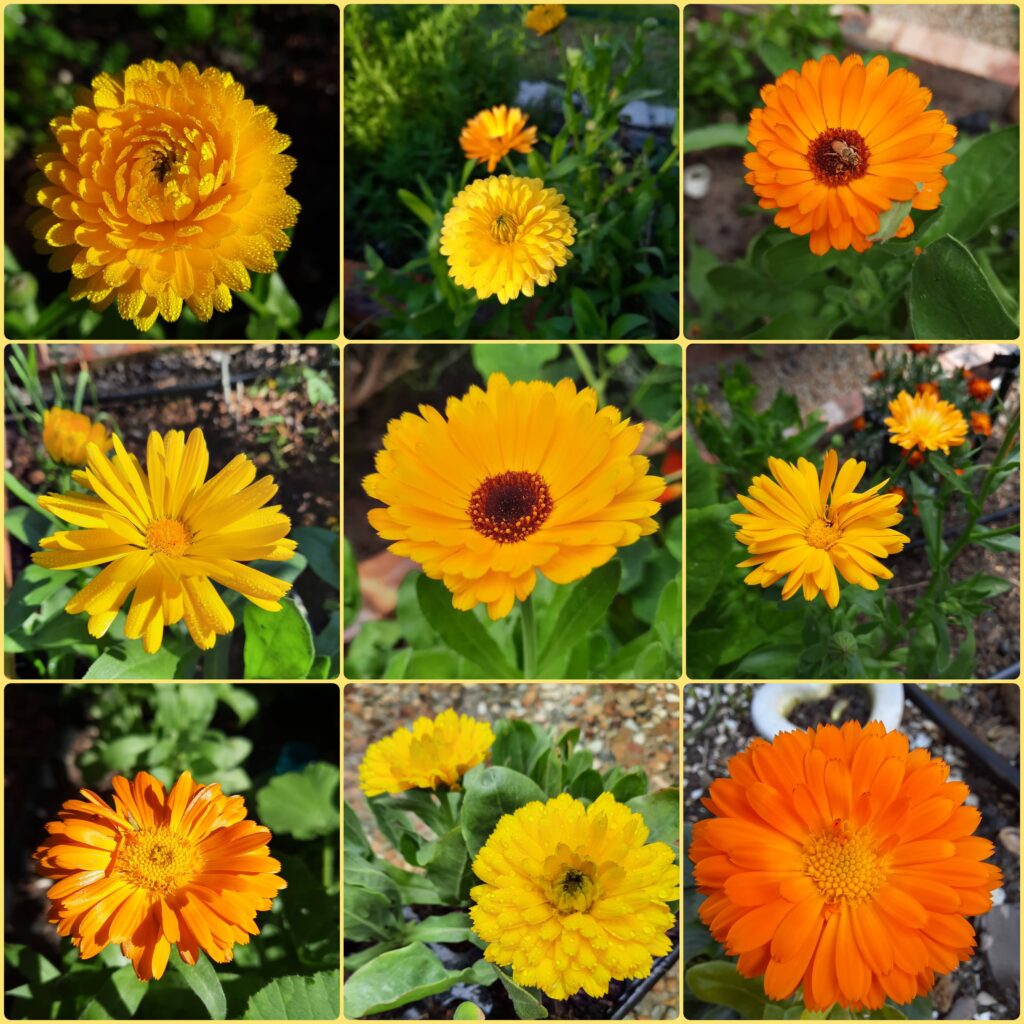
The bright orange and yellow flowers of Calendula officinalis are a cheerful sight in a winter garden. Calendulas are also called English marigolds, although not related to Tagetes marigolds. They are great companion plants to celery, Brussels sprouts, broccoli, tomatoes and beans. They attract beneficial insects like lacewings, ladybirds and hover flies which feed on aphids.
Besides these bright flowers being champions when it comes to their health properties for humans – from being anti-inflammatory, anti-fungal and antiseptic – Calendula tea can help ward off some pesky garden pests.
Soak a cup of flowers and leaves in half a liter of water for 24 hours. Strain and add a dash of dish washing liquid. Top the mixture up with a further liter of water and spray your plants to repel aphids. It also deters tomato hornworms which are the larvae of the hawk moth.
Calendulas grow well in the cooler season flowering mid winter to spring. Sow seeds in autumn in a sunny spot and remember to pick flowers regularly to encourage more buds and a longer flowering season.
Worm tea – a definite benefit for your garden
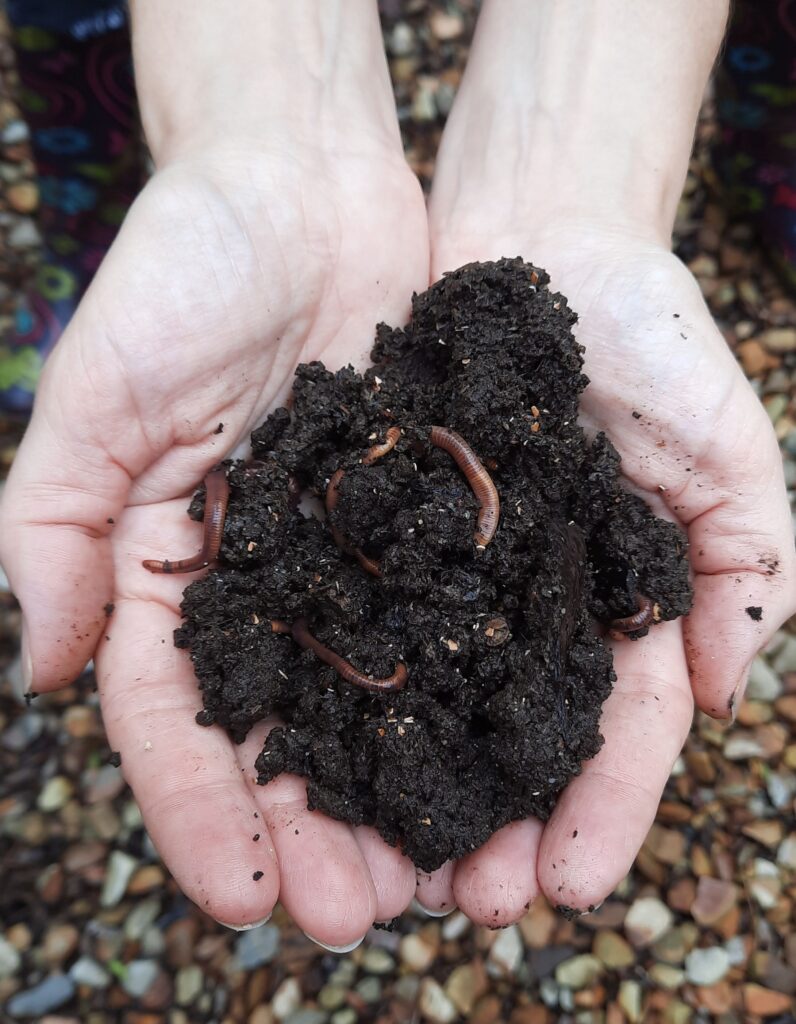
This is one tea I would not recommend drinking but your plants will certainly thank you for giving it to them. The important ingredient in this tea is vermicompost or earthworm castings. In other words – worm poo. Vermicompost is very rich in macro and micro nutrients. It is teeming with beneficial microbes such as bacteria, fungi, nematodes and protozoa (amoeba) and therefore adds life to the soil. The nutrients are drawn out of the vermicompost and are readily available to the plants in the form of a tea.
To make the tea I harvested about a handful of worm castings from my worm farm. I put them in an organza bag which I suspended in a bucket of water and left it to steep for about one to two days. It is recommended to mix the tea with water using a 50/50 ratio and use as a foliar feed or a soil drench. This is an excellent fertiliser for the flower and veggie garden.
Rooibos tea
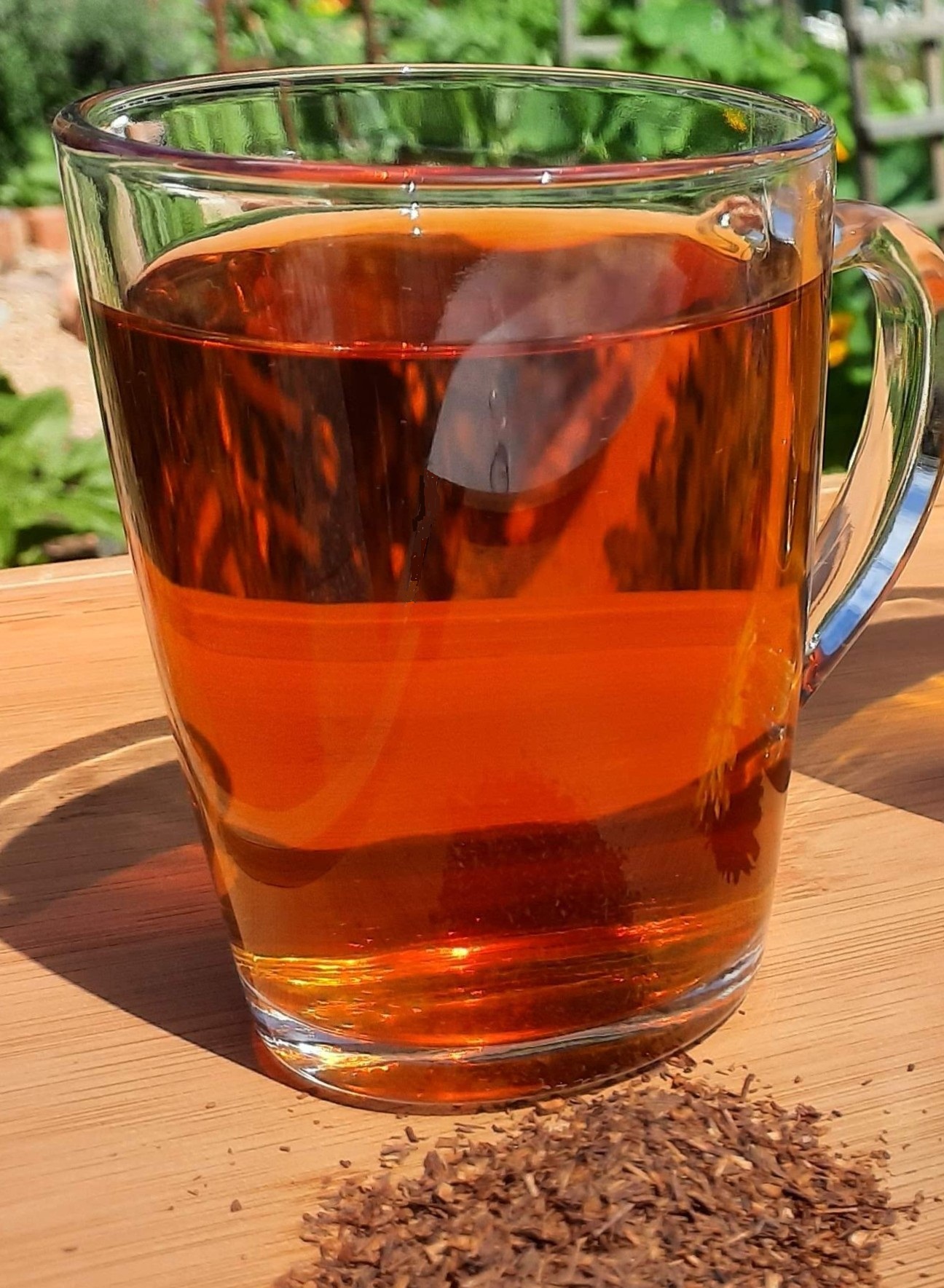
My initial perception of using tea for plants was always that it had to be added to acid-loving shrubs and plants like Azaleas or Blueberries. Well that is true if we are talking about tea from the Camellia sinensis plant. Camellia sinensis tea leaves contain tannins and it is those which are believed to increase the level of acidity in the soil. On the other hand if one is talking about herbal Rooibos tea (Aspalathus linearis) then it is a whole different story as I found out. Rooibos is very low in tannins and is therefore beneficial to the majority of plants for root development.
An added advantage is that snails are not so fond of Rooibos. Sprinkle the spent tea leaves around your seedlings to keep the slimy critters at bay.
Now that you know there are a variety of teas that can benefit your garden remember to make some tea for yourself and watch your garden grow.
Until next time, happy gardening.
Reference sources: Wikipedia, The Gardener & Grow to Eat
One thought on “It’s tea time – Teas that can benefit your garden”
Very informative and well researched and well worth knowing about.
Comments are closed.